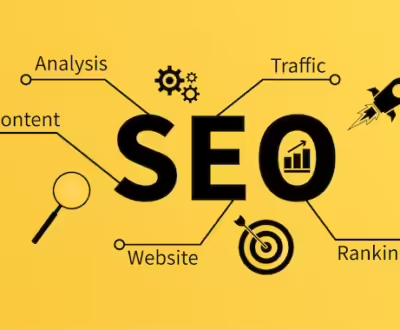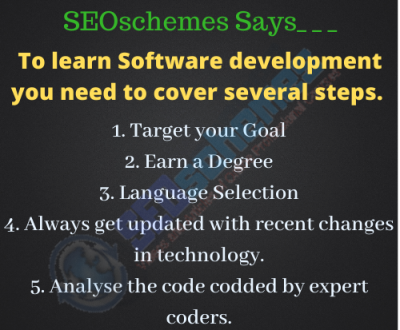The Ultimate Beginner’s Guide to SEO: A Step-by-Step Tutorial for Newbies
- July 13, 2024
- SEO
Search Engine Optimization (SEO) can seem daunting to those new to the digital marketing world. However, understanding and implementing SEO strategies can significantly boost your website’s visibility and drive traffic. As an experienced SEO specialist, I will guide you through the essentials, providing actionable tips and insights to help you start your SEO journey effectively. This comprehensive guide will cover everything from basic SEO techniques for beginners to advanced strategies for small businesses.
What is SEO?
Search Engine Optimization (SEO) is the practice of enhancing a website to rank higher in search engine results pages (SERPs). The goal is to increase organic (non-paid) traffic from search engines like Google. SEO involves various techniques, including keyword research, content optimization, and technical adjustments, all aimed at improving the site’s relevance and authority.
SEO is crucial because search engines are the primary way people discover content online. Higher rankings mean more visibility, which translates to increased traffic, credibility, and potential revenue.
How to Start SEO for Beginners?
Understanding the Basics
Before diving into the practical aspects, it’s essential to grasp the foundational concepts of SEO. One of the first steps is keyword research. This involves identifying the terms and phrases your target audience uses when searching for information related to your niche.
Choosing the Right Keywords
There are two main types of keywords: long-tail and short-tail. Long-tail keywords are more specific and typically less competitive, making them ideal for beginners. Short-tail keywords, on the other hand, are broader and often have higher competition.
Setting Up for Success
Creating an SEO-friendly website structure is crucial. Ensure your site is easy to navigate and mobile-friendly, as search engines prioritize mobile-optimized sites. Additionally, set up Google Analytics and Google Search Console. These tools provide valuable insights into your website’s performance and help track your SEO progress.
Basic SEO Techniques for Beginners
On-Page SEO
On-page SEO involves optimizing individual pages to rank higher and earn more relevant traffic. Key elements include:
- Title Tags and Meta Descriptions: Craft compelling titles and descriptions that incorporate your primary keywords.
- Headers (H1, H2, H3): Use headers to structure your content and include keywords naturally.
- Content Optimization: Ensure your content is high-quality, informative, and optimized for the chosen keywords.
Off-Page SEO
Off-page SEO focuses on activities outside your website to improve its authority and ranking. This includes:
- Building Backlinks: Acquire high-quality backlinks from reputable sites to boost your site’s authority.
- Social Media Signals: Engage on social media platforms to drive traffic and enhance your site’s visibility.
Technical SEO
Technical SEO involves optimizing your website’s backend to improve its search engine rankings. Key aspects include:
- Website Speed: Ensure your site loads quickly, as slow sites can negatively impact user experience and rankings.
- Security (HTTPS): Use HTTPS to secure your website, as search engines favor secure sites.
- XML Sitemaps and Robots.txt: Create and submit an XML sitemap to help search engines understand your site structure. Use a robots.txt file to manage which pages search engines should index.
Step-by-Step SEO for Beginners
Creating an SEO Strategy
Developing a solid SEO strategy is crucial for long-term success. Start by setting clear goals and key performance indicators (KPIs). Conduct an SEO audit to identify areas for improvement and create a detailed action plan.
Implementing Your SEO Plan
- On-Page Optimizations: Optimize your pages using the on-page SEO techniques discussed earlier.
- Content Creation and Optimization: Regularly create high-quality content that addresses your audience’s needs and includes relevant keywords.
- Link-Building Strategies: Focus on acquiring high-quality backlinks through guest blogging, partnerships, and other methods.
Understanding SEO Tools
What is the Meaning of SEO Tools?
SEO tools are software solutions designed to help you improve your website’s SEO. They provide insights and automate various tasks, making it easier to optimize your site effectively. Examples include Google Analytics, SEMrush, and Ahrefs.
How SEO Tools Work
- Keyword Research Tools: Identify the best keywords for your content.
- Site Audit Tools: Analyze your website for technical issues and optimization opportunities.
- Rank Tracking Tools: Monitor your site’s ranking progress for specific keywords.
SEO Strategies for Small Businesses
Local SEO
Local SEO is essential for small businesses targeting a local audience. It involves optimizing your online presence to attract local customers.
- Google My Business: Set up and optimize your Google My Business profile to appear in local search results.
- Local Citations and Reviews: Ensure your business is listed accurately on local directories and encourage customer reviews.
Content Marketing for Small Businesses
Content marketing is a powerful tool for small businesses. It involves creating and sharing valuable content to attract and engage your target audience.
- Blogging: Regularly publish blog posts on topics relevant to your audience and industry.
- Social Media: Use social media platforms to promote your content and engage with your audience.
SEO Checklist for Beginners
On-Page SEO Checklist
- Keyword Optimization: Ensure your content includes targeted keywords naturally.
- Content Quality: Focus on providing valuable, informative, and engaging content.
- Meta Tags and Descriptions: Optimize your meta tags and descriptions for each page.
Off-Page SEO Checklist
- Backlink Building: Acquire high-quality backlinks from reputable sites.
- Social Media Engagement: Promote your content on social media and engage with your audience.
Technical SEO Checklist
- Site Speed: Optimize your site to load quickly.
- Mobile Optimization: Ensure your site is mobile-friendly.
- XML Sitemaps and Robots.txt: Submit an XML sitemap and manage your robots.txt file.
Common SEO Mistakes to Avoid
Avoiding common SEO mistakes is crucial for maintaining a strong online presence. Key pitfalls to watch out for include:
- Keyword Stuffing: Overusing keywords can lead to penalties and poor user experience.
- Ignoring Mobile Users: Ensure your site is mobile-friendly, as a significant portion of users access the web via mobile devices.
- Neglecting Analytics: Regularly review your analytics to understand your site’s performance and identify areas for improvement.
- Poor Quality Content: Focus on creating high-quality, valuable content rather than producing large quantities of low-quality material.
Simple SEO Tips for New Websites
Starting with Basic Optimizations
When launching a new website, begin with basic SEO optimizations:
- Choosing the Right Keywords: Conduct thorough keyword research to identify relevant terms.
- Creating Valuable Content: Develop content that addresses your audience’s needs and incorporates targeted keywords.
Building Authority Gradually
Building your site’s authority takes time, but starting early can yield significant results:
- Getting Initial Backlinks: Reach out to other websites for guest blogging opportunities or partnerships.
- Utilizing Social Media: Use social media platforms to promote your content and engage with your audience.
Conclusion: Empowering Beginners with SEO Knowledge
SEO is an ever-evolving field that requires continuous learning and adaptation. By understanding and implementing the strategies outlined in this guide, you can significantly improve your website’s visibility and drive organic traffic. Remember, the journey of mastering SEO is ongoing, but with dedication and the right techniques, you can achieve substantial results.
FAQs
How to start SEO for beginners?
Starting SEO involves understanding the basics, conducting keyword research, and setting up an SEO-friendly website. Begin by optimizing your on-page elements, creating high-quality content, and building backlinks.
What is the meaning of SEO tools?
SEO tools are software solutions that help improve your website’s SEO. They assist with tasks like keyword research, site audits, and rank tracking.
How can SEO work?
SEO works by optimizing your website to be more relevant and authoritative in the eyes of search engines. This involves keyword optimization, content creation, technical improvements, and building backlinks.
Can I learn SEO myself?
Yes, you can learn SEO yourself through online resources, courses, and hands-on practice. Many SEO professionals are self-taught and have learned through trial and error.
Can I do SEO for free?
Yes, there are many free SEO tools and resources available, such as Google Analytics and Google Search Console, that can help you optimize your website without spending money.
This is author biographical info, that can be used to tell more about you, your iterests, background and experience. You can change it on Admin > Users > Your Profile > Biographical Info page."
About us and this blog
We are a digital marketing company with a focus on helping our customers achieve great results across several key areas.
Request a free quote
We offer professional SEO services that help websites increase their organic search score drastically in order to compete for the highest rankings even when it comes to highly competitive keywords.





